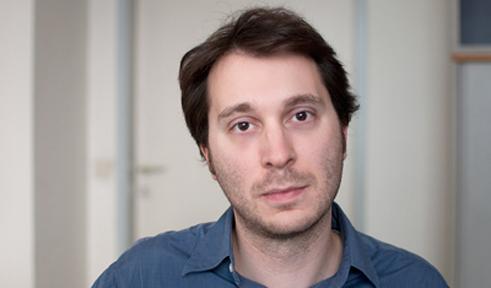Philosophy
Philosophy enhances one's ability to evaluate arguments critically, creatively and fairly. Law, medicine, theology, management, editorial work, and college teaching are especially open to successful honors tutorial students in philosophy.
A philosophy major prepares students for a wide variety of career paths, including various graduate and professional education programs (e.g., law school, divinity school, etc.), careers that demand high levels of critical thinking and communication skills, and many non-technical careers in business and science.
The honors program, in particular, gives the student the added advantage of highly specialized training that will be more than adequate to pursue graduate work in philosophy.
Program Overview
Students first establish a broad foundation for their upper-level tutorials by taking tutorials connected with the classes at the 1000- and 2000 level, such as: fundamentals, logic, ethics, social and political philosophy, philosophy of mind, and philosophy of religion.
Students then typically move on to tutorials in the required history of philosophy series: Ancient (pre-Socratics through early Roman philosophy), Modern (Descartes through Kant), and 19th Century (French, German and British Philosophy of the 19th century).
Following these courses, students arrange tutorials in the three major topic areas required by the department: (1) advanced history; (2) value theory; (3) theory of knowledge, metaphysics, philosophy of science, philosophy of language, or analytic. Most often, it is while taking these tutorials that students begin to focus on an area of particular interest to them. It is from this area of interest that students will choose a thesis topic and an advisor to guide them in research, related tutorials and writing.
During the student's last year, the thesis is written and defended. Each semester the program requires that students take Philosophy Practicum. This is a one-credit course meant to informally cover topics relevant to the study as well as to the profession of philosophy. For example, students will meet colloquium speakers and candidates for positions in the department; discuss the ongoing research of faculty members, practice writing and teaching.
All students are urged to select an area outside philosophy for concentration. Areas most often chosen are: English, psychology, history, art, and mathematics. Although the department does not require mathematics courses, it does encourage the development of a reasonable degree of mastery in this subject area. The Philosophy program of study in the Honors Tutorial College is highly flexible, and every effort will be made to shape it to fit the needs and interests of dedicated students.
Admission
The deadline for application for admission is November 15th, and admission interviews are held in January. Although the department considers grades and standardized test scores, it places a great deal of emphasis on personal interviews.
Director of Studies

Dr. Christoph Hanisch
Ellis 212
hanisch@ohio.edu
Education
Ph.D., Bowling Green University
Specialization
Ethics, Philosophy of Action and Agency